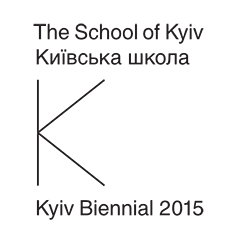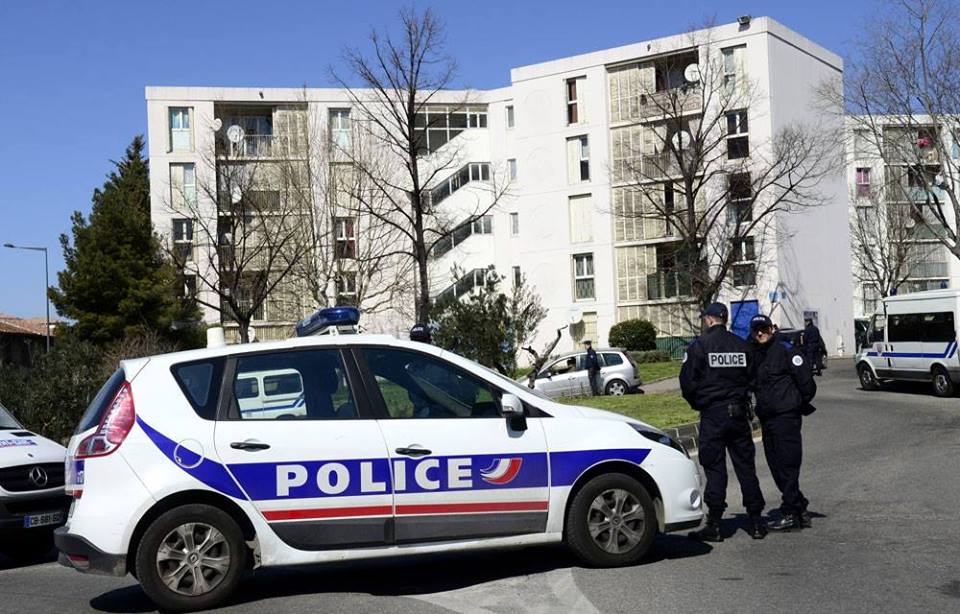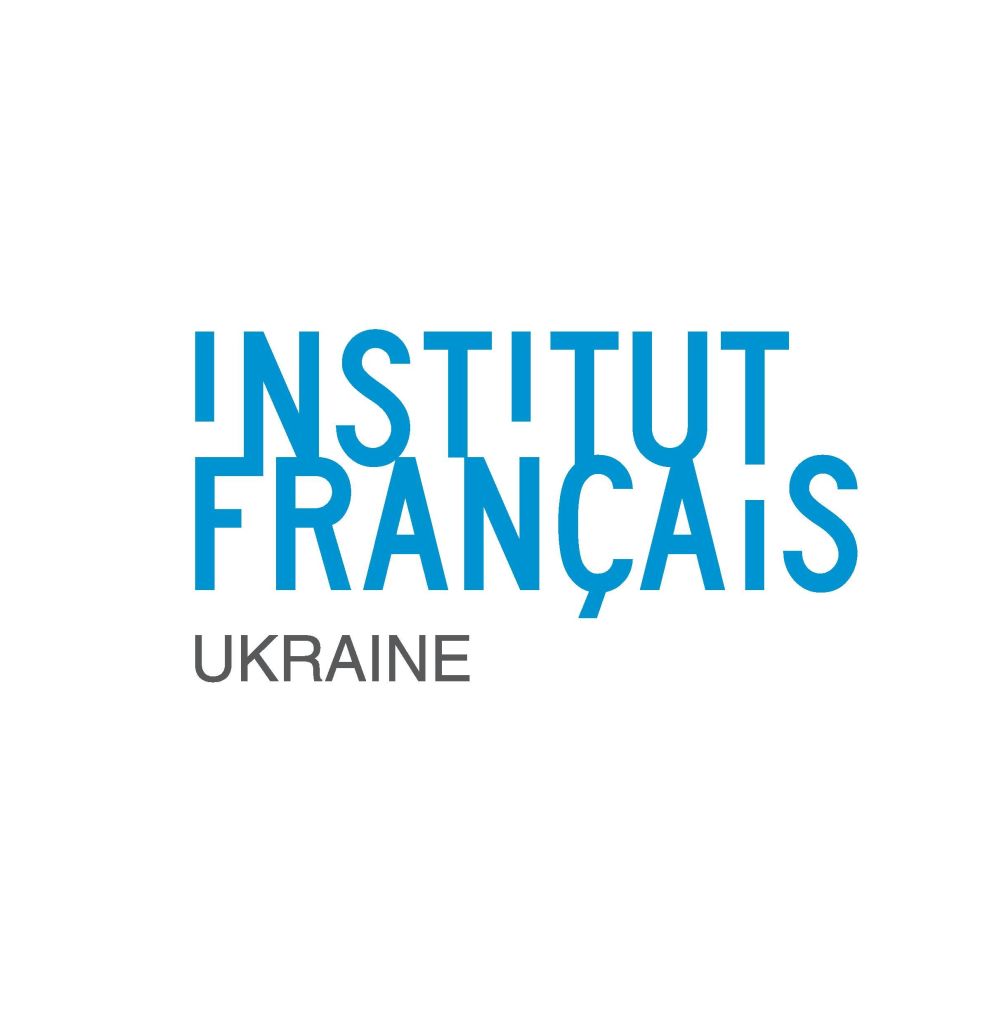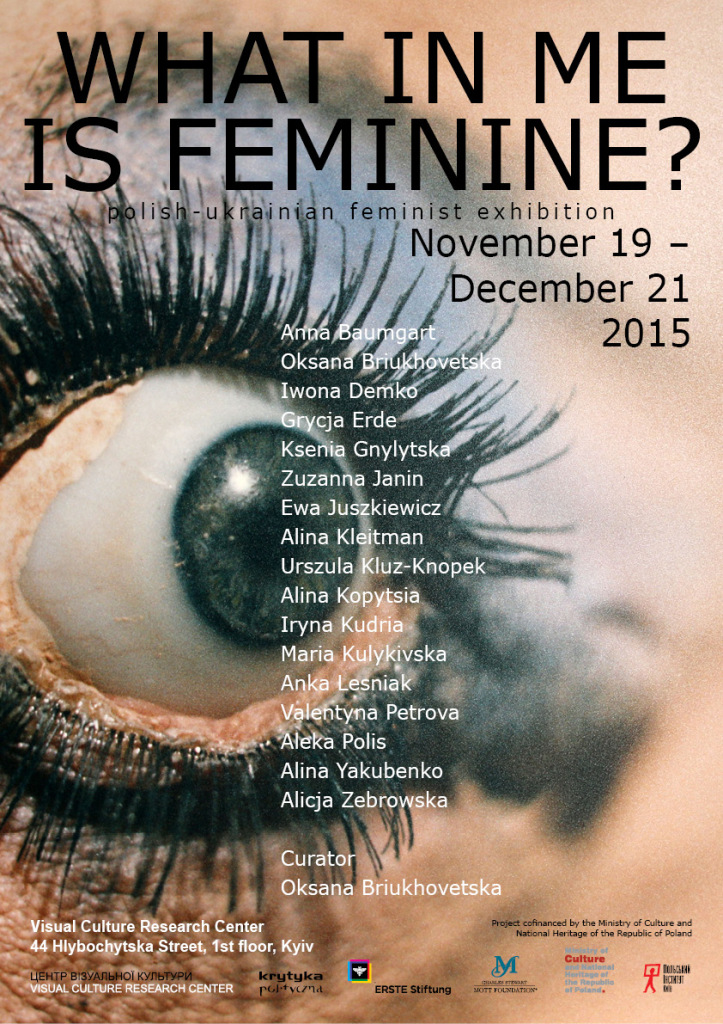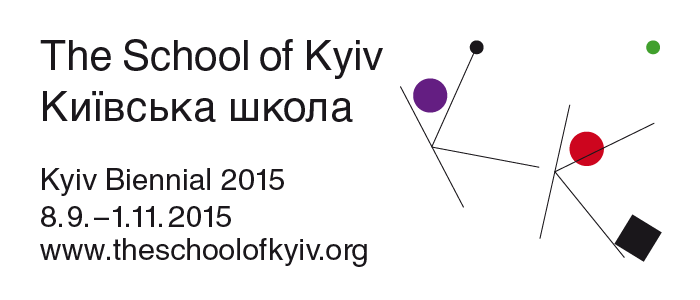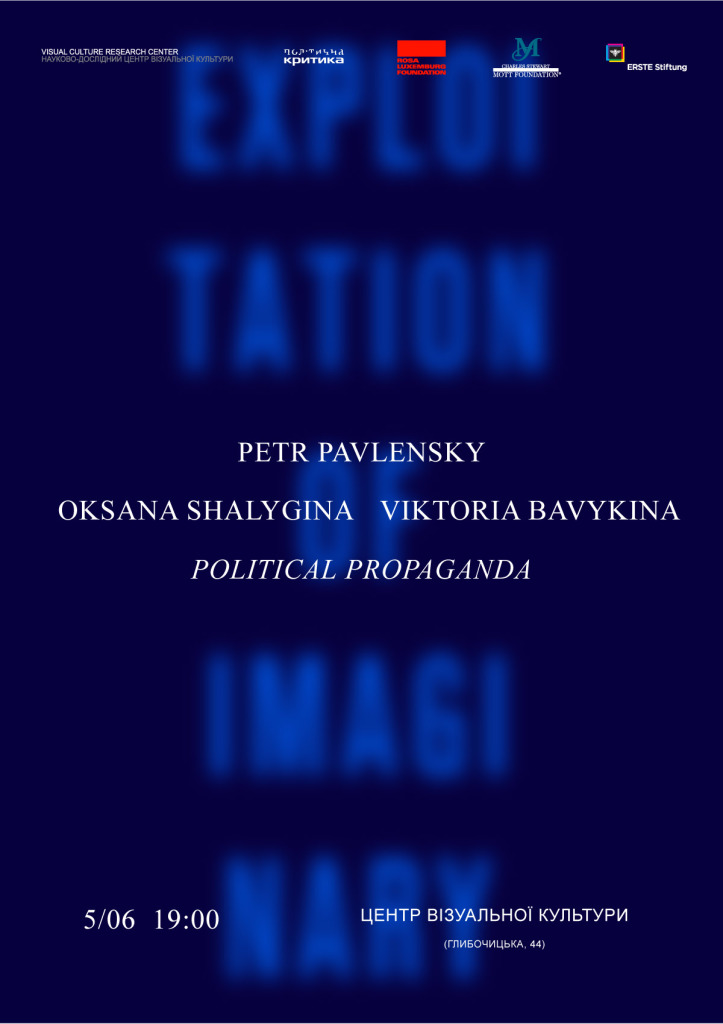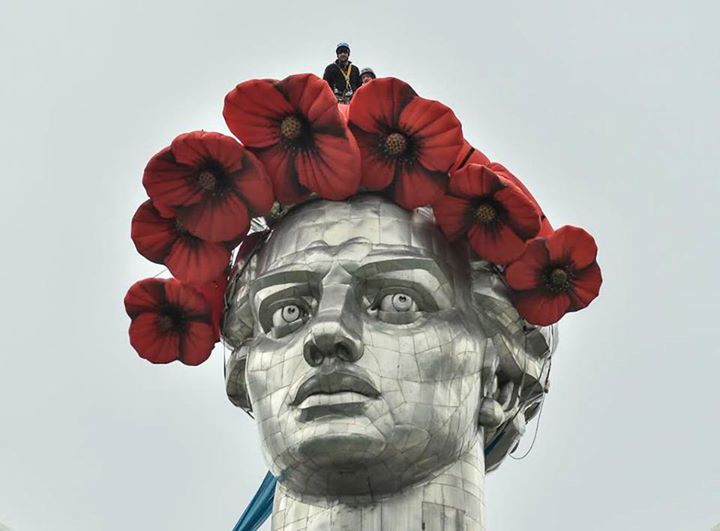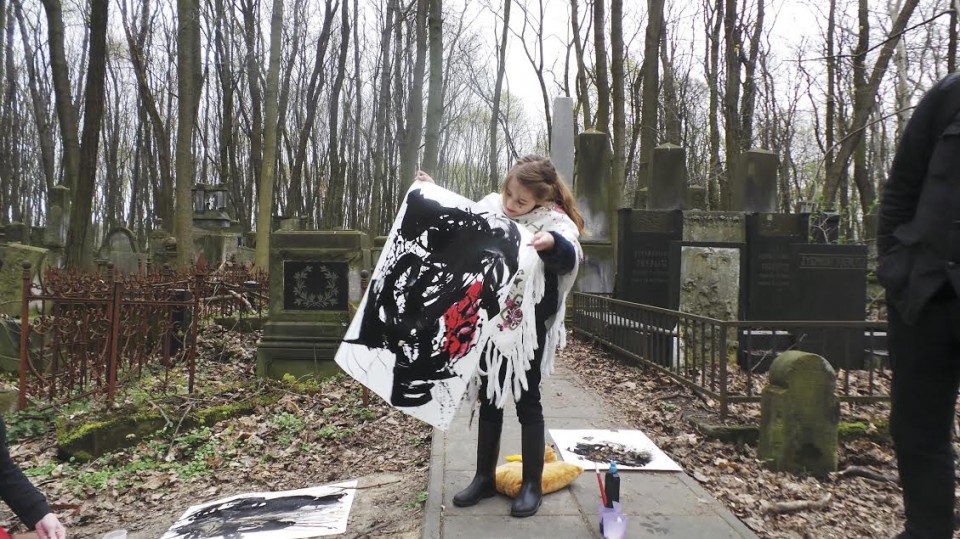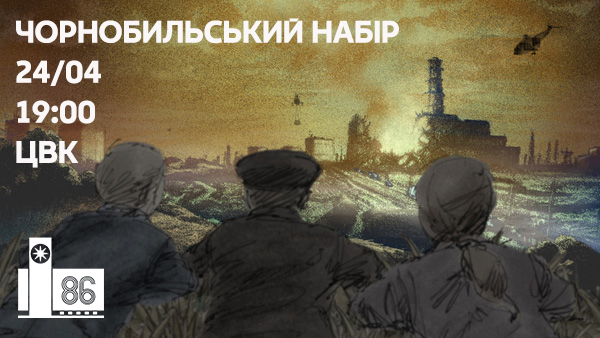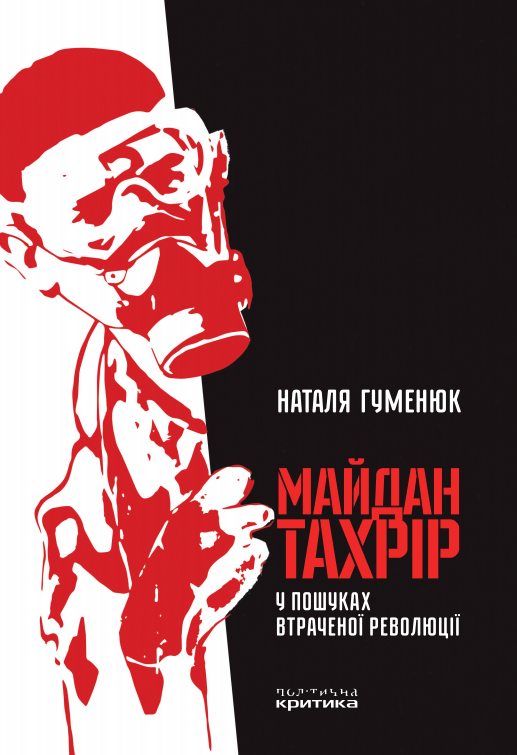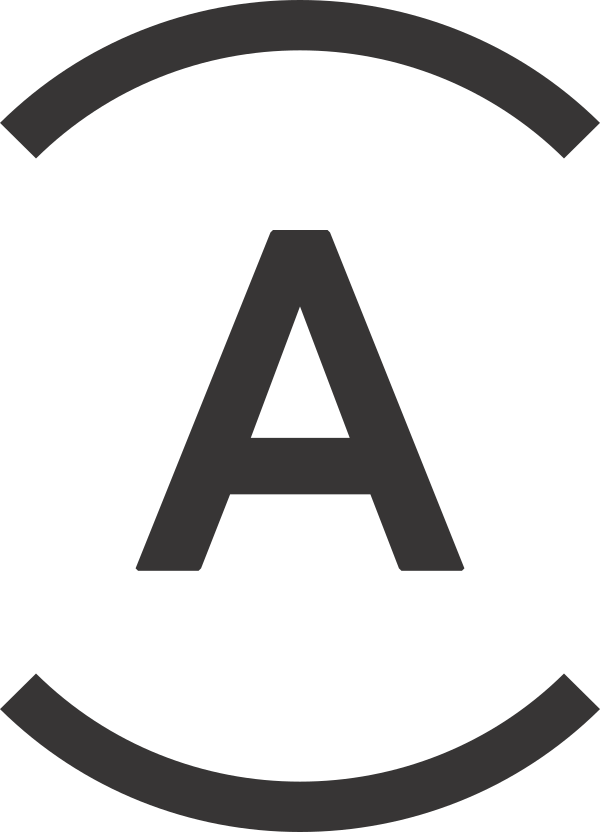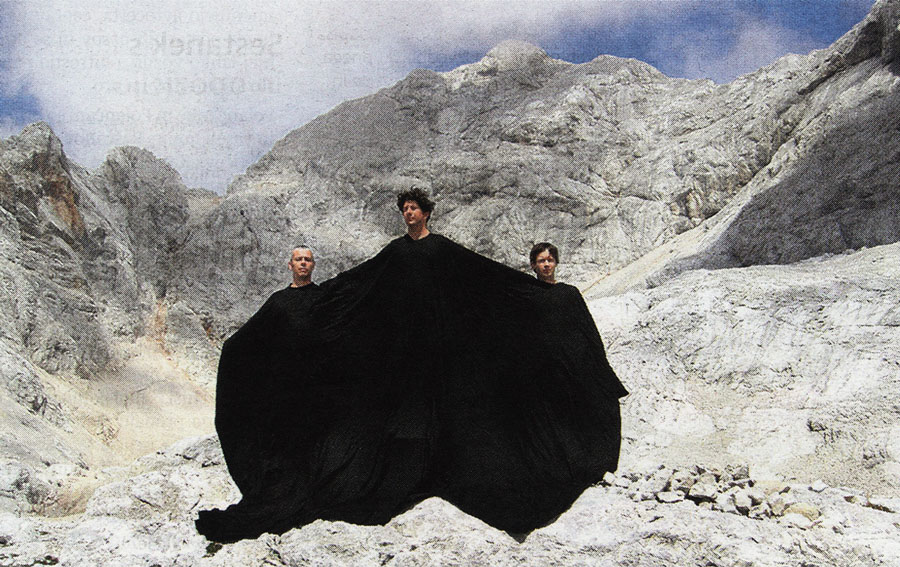Lecture by Jérémie Gauthier
Thursday, 17 December 2015, 19:00
Ethnography of Police Intrusion Practices in High Security Areas (“Sensitive” Neighborhoods) in France
Lecture by Jérémie Gauthier is based on a long term ethnographic inquiry of public security actors (police, municipality, judicial bodies) in one big French city. It strives to reconceptualize the relationship between police actions and political power. The lecturer will present strategies, chosen by the police in accordance with requirements of central authorities, through the example of the so-called Top-Priority Security Zones Reform, which is being implemented in France since 2012, and is aimed at “territorialization” of police activities by concentrating their forces in so-called sensitive areas. He will also analyze the division of power between different institutions involved in implementation of local security policies, as well as impact such reforms have on the relationship between police and residents of these “sensitive” neighborhoods.
Jérémie Gauthier is a sociologist who works at the Institute for the Interdisciplinary Research of Social Problems (IRIS-EHESS) in Paris and in Marc Bloch Franco-German Research Centre for the Social Sciences in Berlin. His research is mainly focused on the questions of police activities in France and Germany: the relationship between police and minorities, discrimination and racism on the part of police, gender dimension in the work of police, social security reform, as well as correlations of police’s rights and actions. Lately, Jérémie Gauthier has been working on the research of state policy implementation methods on the local level in France and Germany.
The lecture will take place within The School of the Displaced of The School of Kyiv – Kyiv Biennial 2015 and the frameworks of Migrations, Identities, Territories program, which is developed by the French Institute in Ukraine and presents French experience in migration research from historical, sociological, and demographical perspectives.
Working language – French, with consecutive interpretation into Ukrainian
Admission is free
Supported by ERSTE Stiftung and Charles Stewart Mott Foundation
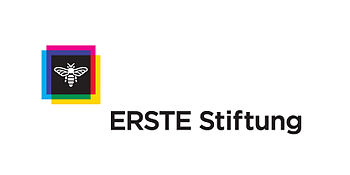
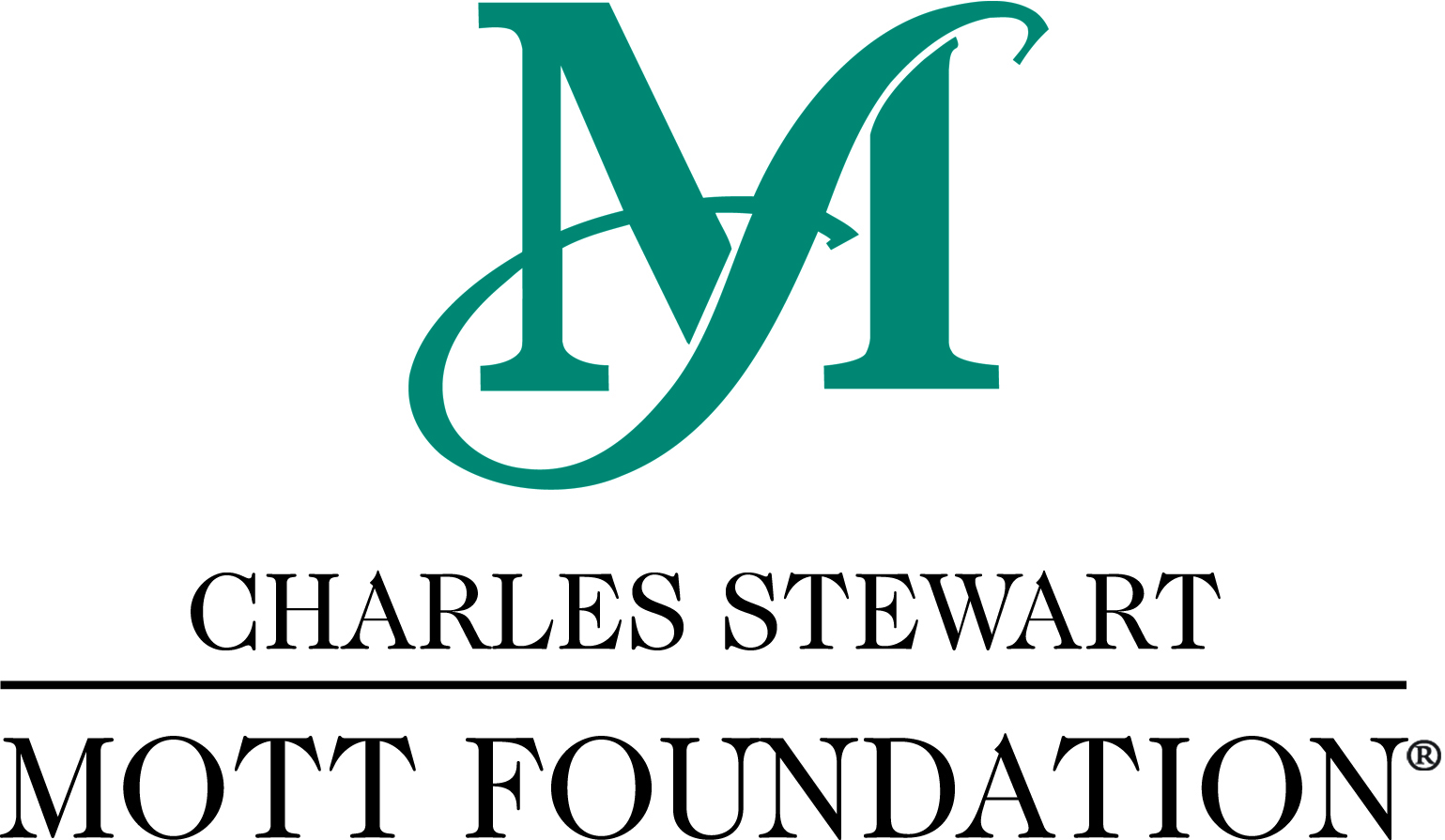
Contacts:
+38096 4929600 (Nataliya Neshevets)
www.facebook.com/vcrc.org.ua
vcrc@vcrc.org.ua
Program of Events within “What in Me Is Feminine?” Exhibition
November 19, Thursday
19:00
Opening of “What in Me Is Feminine?” Exhibition
November 20, Friday
19:00
Zuzanna Janin. In Between. About the Moment and Memory.
The artist will talk about the main topics of her works such as fragility of a human and his or her conditions of existence, memory, space, and time. She will show her video In Between (2006).
20:00
Anka Lesniak. Visible and inVisible. Feminist Art in Public Space.
The artist will show photo and video documentations of her projects that are aimed at the specificity of a site, where they take place.
Working language – English
November 21, Saturday
17:00
Alicja Zebrowska. Psycho-Penetration
The artist will focus on her artistic fascination with a human soul (psyche) and experiments with interactions between people. She will show her videos Insides, Desinfection of feelings, Infiltron, Regression, Monitoring.
18:00
Anna Baumgart. How the Trained Girls Make Love Movies
A human as a political animal is a human that has a voice to avoid invisibility. The artist will show her films: Ecstatic, Hysterical and Other Saintly Ladies, Supplement to the Piece on Mother and Motherland, and The Cranes Are Flying.
19:00
Aleka Polis. Сyclooxytocin
The artist will show the work Oxytocin # 44 about her gift for Ukraine during Maidan and also videos Muslim Rosary, After three days I will have four holes, Hylogenia.
Working language – Polish with translation
November 22, Sunday
16:00
Oksana Briukhovetska. A curator-led tour of «What in me is feminine?» exhibition
November 29, Sunday
17:00
Iwona Demko. A Forgotten Vagina Cult
The artist will give a lecture about the divine and sacred status of vagina in pre-patriarchy because of its ability to give life, and how later the vagina has been fraught with guilt and shame.
Working language – Polish with translation
December 5, Saturday
17:00
Alina Yakubenko. How It Used to Be, video (2015)
The video is comprised of anonymous interviews in which artists talk about reluctant work to earn money and the hidden side of the artists’ labor market, which generates a product called “hackwork” (“khaltura”).
December 18, Friday
19:00
Discussion Sex Work: to Allow or to Ban
The public discussion is aimed to debunk popular myths about sex work by the up-to-date research in social sciences. The reasons that motivate women to become sex workers and existing practices to regulate sex work will be at the focus of the discussion.
Participants of the discussion:
Natalia Isaieva, a spokeswoman for Legalife-Ukraine charity organization
Olena Zuckerman, an executive director of Legalife-Ukraine charity organization
Anna Dovgopol, a feminist
Moderated by Dafna Rachok.
December 21, Monday
19:00
Oksana Briukhovetska. A curator-led tour of «What in me is feminine?» exhibition
Closing of the exhibition
Supported by ERSTE Stiftung and Charles Stewart Mott Foundation


Project cofinanced by the Ministry of Culture and National Heritage of the Republic of Poland
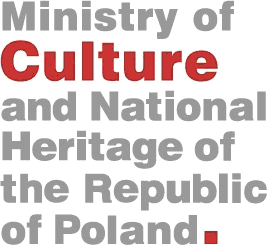
Organization partners: Krytyka Polityczna and Polish Institute in Kyiv


Contacts:
www.facebook.com/vcrc.org.ua
vcrc@vcrc.org.ua
Tetiana Mala
093 168 38 62
mala.socio@gmail.com
Anna Orekhova
050 918 65 37
a.orekhova@gmail.com
The School of Kyiv – Kyiv Biennial 2015
The School of Kyiv – Kyiv Biennial 2015 presents a new format of an art biennial integrating exhibitions and arenas of public reflection. Works of more than 100 international and Ukrainian artists will be shown in an open display structure, including six Schools, where artists and intellectuals from around the world will meet and work with the public in collaborative forums. Departing from the current situation in Ukraine, the “The School of Kyiv” will be addressing burning issues relevant for the citizens of Ukraine, Europe and beyond as well as imagining egalitarian and alternative futures; and the counter-propositions of art.
The School of Kyiv is an independent project curated by Hedwig Saxenhuber and Georg Schöllhammer, and conceived and organized together with the Visual Culture Research Center (Kyiv).
Departments of “The School of Kyiv” will open in a series of institutions across Europe as an integral part of the project.
Presentation of the publishing project “POLITICAL PROPAGANDA”
Friday, 5 June 2015, 19:00
Visual Culture Research Center (44 Hlybochytska Street (1st floor), Kyiv)
Visual Culture Research Center and Political Critique invite you to the presentation of publishing project “POLITICAL PROPAGANDA”, which will take place on Friday, 5 June, at 19:00.
Oksana Shalygina, Petr Pavlensky and Viktoria Bavykina will present the “POLITICAL PROPAGANDA” publishing house. “POLITICAL PROPAGANDA” is an independent information platform, which covers problems of contemporary art in political context. Particular attention will be drawn to the latest issue of the same-name magazine. “This issue tells the brutal story of victim production plant. Sexual exploitation, free labour, and funding of their possessors is something that the victims are forced to do in the process of reworking”. – PP. The “plant” example and personal life experience will help the editors to explain why is personal always political.
Oksana Shalygina is a publisher and editor-in chief of “POLITICAL PROPAGANDA” publishing house. Petr Pavlensky is an artist. Viktoria Bavykina is a head of “POLITICAL PROPAGANDA” publishing house.
The lecture will take place at Visual Culture Research Center within the frameworks of the exhibition “Some Say You Can Find Happiness There” and “Exploitation of the Imaginary” project (May 20 – June 15, 2015).
Admission is free
The project is supported by Rosa Luxemburg Stiftung
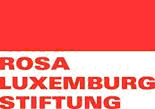
Supported by ERSTE Stiftung and Charles Stewart Mott Foundation


Visual Culture Research Center (VCRC) was founded in 2008 as a platform for collaboration between academic, artistic, and activist communities. VCRC is an independent initiative, which is engaged in publishing and artistic activities, scientific research, organization of public lectures, discussions, and conferences. In 2015 Visual Culture Research Center received the European Cultural Foundation’s Princess Margriet Award.
Visual Culture Research Center (44 Hlybochytska Street (1st floor), Kyiv)
Contacts:
+38096 4929600 (Nataliya Neshevets)
www.facebook.com/vcrc.org.ua
vcrc@vcrc.org.ua
Presentation of the latest issue of “Siniy Divan” magazine
Sunday, 31 May 2015, 19:00
Presentation of the latest issue of “Siniy Divan” magazine
with participation of
Oleg Aronson and Helen Petrovsky
Visual Culture Research Center (44 Hlybochytska Street (1st floor), Kyiv)
Visual Culture Research Center and Political Critique invite you to the presentation of the latest issue of “Siniy Divan” magazine, which will take place on Sunday, 31 May, at 19:00.
The latest issue of “Siniy Divan” magazine is devoted to the event of Maidan in Ukraine, the notion of contemporary democracy, and exploration of new political topology.
Is democracy, in particular absolute democracy, possible today? Protest movements, which began in 2011 all over the world, as well as events on Maidan pose a problem of direct popular rule. The authors of the issue – Ukrainian, Russian, American, and Italian researchers and philosophers – reflect on the problem of the subject in contemporary protest movements, on political time in which this subject is placed, with which values and why it identifies.
“Siniy Divan” magazine has been published under the editorship of Helen Petrovsky since 2002. The magazine focuses on contemporary philosophy, contemporary art, film and media studies, visual studies etc.
Oleg Aronson is an art historian, film and media theorist, philosopher. He is a fellow researcher at the Institute of Philosophy (Russian Academy of Sciences).
Helen Petrovsky is a philosopher, anthropologist, cultural theorist. She is editor-in-chief of “Siniy Divan” magazine.
Lectures will take place at Visual Culture Research Center within the frameworks of the exhibition “Some Say You Can Find Happiness There” and “Exploitation of the Imaginary” project (May 20 – June 15, 2015).
Admission is free
The project is supported by Rosa Luxemburg Stiftung

Supported by ERSTE Stiftung and Charles Stewart Mott Foundation


Visual Culture Research Center (VCRC) was founded in 2008 as a platform for collaboration between academic, artistic, and activist communities. VCRC is an independent initiative, which is engaged in publishing and artistic activities, scientific research, organization of public lectures, discussions, and conferences. In 2015 Visual Culture Research Center received the European Cultural Foundation’s Princess Margriet Award.
Visual Culture Research Center (44 Hlybochytska Street (1st floor), Kyiv)
Contacts:
+38096 4929600 (Nataliya Neshevets)
www.facebook.com/vcrc.org.ua
vcrc@vcrc.org.ua
Discussion “World War II: Ukrainian Version”
Tuesday, 12 May 2015, 19:00
Visual Culture Research Center (44 Hlybochytska Street (1st floor), Kyiv)
Visual Culture Research Center and Political Critique invite you to the discussion “World War II: Ukrainian Version”, which will take place on Tuesday, 12 May, at 19:00.
Discussion “World War II: Ukrainian Version” is dedicated to Ukrainian historiography of the 2nd World War, its key events and issues. Where does “the Great Patriotic War” ends and “2nd World War” starts in the situation of post-Soviet self-determination? What is the role of Ukraine in contemporary World War II narratives? The war of nations, ethnicities, and states: whom did Ukrainians fight in World War II? Holocaust in Ukraine: Debates on the role of Ukrainians in the extermination of Jews. How has Ukrainian state changed since the 2nd World War?
Participants:
Serhiy Yekelchyk is historian, who teaches at the University of Victoria (Canada). He is author of the books Empire of Memory: Russian-Ukrainian Relations in Soviet Historical Imagination (2008), History of Ukraine: The Birth of Modern Nation (2007). At the moment he is working on the book about Stalinist political rituals.
Ivan Homza is political theorist and historian, who researches European fascism and integral nationalism. He teaches at the Department of Political Science (National University of “Kyiv-Mohyla Academy”).
Iryna Sklokina holds a PhD in History and explores official Soviet politics of memory about the War. She is a Fellow Researcher at Center for Urban History of East Central Europe (Lviv).
Moderator:
Kateryna Ruban is a PhD candidate at New York University, member of Visual Culture Research Center, researcher of Soviet history.
Admission is free
Discussion will take place within the frameworks of educational project “Revenge of Memory: World War II in Political and Cultural Narratives”, devoted to conceptualization of World War II discourse, actualized by recent events in Ukraine, analysis of political, rhetorical, media strategies of instrumentaliation of the historical war experience, production of ways of working with post-war experience.
Admission is free
The project is supported by Heinrich Böll Stiftung (Kyiv)
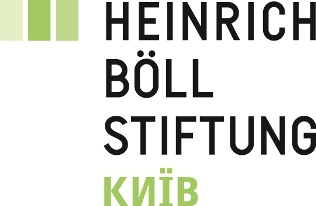
Supported by ERSTE Stiftung and Charles Stewart Mott Foundation


Visual Culture Research Center (VCRC) was founded in 2008 as a platform for collaboration between academic, artistic, and activist communities. VCRC is an independent initiative, which is engaged in publishing and artistic activities, scientific research, organization of public lectures, discussions, and conferences. In 2015 Visual Culture Research Center received the European Cultural Foundation’s Princess Margriet Award.
Visual Culture Research Center (44 Hlybochytska Street (1st floor), Kyiv)
Contacts:
+38096 4929600 (Nataliya Neshevets)
www.facebook.com/vcrc.org.ua
vcrc@vcrc.org.ua
Artur Żmijewski will present his new films
Tuesday, 28 April 2015, 19:00
Visual Culture Research Center (44 Hlybochytska Street (1st floor), Kyiv)
On Tuesday, 28 April 2015, at 19:00 the screening of new films by Artur Żmijewski will take place at Visual Culture Research Center.
The new series of films by Artur Żmijewski was created during the years 2013 – 14 after a break caused by his work on the 7th Berlin Biennial (2012). In his films Żmijewski continues to explore the connections between power, art, and society.
Critique of religion as the instrument of power is one of the central topics for Żmijewski. His Film Mass 2 (2014) is the continuation of his experiments with placing religious rituals in the secular space of art. In Autumn 2014 Artur Żmijewski staged catholic mass at Krakow National Theatre. Mass 2 depicts this process as an answer to intrusion of religion into secular society.
During the year 2014 Artur Żmijewski created the series of short films in collaboration with female prisoners at Warsaw penal colony (Brushworks, Cookbook, Making of). These films document the series of workshops which transformed the disciplinary institution into the place for creative work. Films Total Landscape and Stranger show artistic experiments with the issue of everyday violence.
The films will be presented by the author. Discussion will follow.
Screening program:
Mass 2, 18’
Brushworks, 6’
Cookbook, 12’
Making of, 9’
Total Landscape, 5’
Stranger, 12’
Artur Żmijewski is an artist, film director, and curator. He is the artistic editor of Political Critique magazine (Krytyka Polityczna). He represented Poland at 51st Venice Biennial (2004). His works were shown at the Museum of Modern Art (New York), KunstWerke (Berlin), National Gallery of Art Zachęta, Documenta 12 (2007), Manifesta 4 (2002) etc. In 2012 he curated the 7th Berlin Biennial. In 2012 his personal exhibition Democracies took place at Visual Culture Research Center.
Working language – English
Admission is free
Supported by ERSTE Stiftung and Charles Stewart Mott Foundation


Visual Culture Research Center (VCRC) was founded in 2008 as a platform for collaboration between academic, artistic, and activist communities. VCRC is an independent initiative, which is engaged in publishing and artistic activities, scientific research, organization of public lectures, discussions, and conferences. In 2015 Visual Culture Research Center received the European Cultural Foundation’s Princess Margriet Award.
Contacts:
+380631481204 (Nazariy Sovsun)
www.facebook.com/vcrc.org.ua
vcrc@vcrc.org.ua
Screening of short film program CHERNOBYL SET
Friday, 24 April 2015, 19:00
Visual Culture Research Center (44 Hlybochytska Street (1st floor), Kyiv)
Visual Culture Research Center and Political Critique invite you to a special screening of short film program CHERNOBYL SET presented by “86” festival, which will take place on Friday, 24 April, at 19:00.
The personal stories, social dimension, and fantastic plots. Look at the trace of The Explosion in short films from all over the world in the special program Chernobyl Set. The program will be presented by culture and film theorist, co-founder of Visual Culture Research Center, Olga Bryukhovetska. After the screening presentation of Second Festival of Film and Urbanism “86” program and discussion with festival curator Illya Gladstein will take place.
Chernokids
France, 2010, 7’
Directed by Marion Petegnief, Matthieu Bernadat, Nils Boussuge, Florence Ciuccoli, and Clément Deltour
Somewhere in Ukraine, three deformed orphans decide to visit their mother, which they believe to be a Nuclear Power Plant.
GAMMA
UK, Ukraine, Kazakhstan, 2012, 7’
Factory Fifteen in association with Unknown Fields
In a post-nuclear future, when the earth is riddled with radiation, a new urban developer proposes to regenerate the cities back into civilization. GAMMA sets out to stabilize the atomic mistakes of yesteryear for the re-inhabitation of future generations.
Leonid’s Story
Germany, Ukraine, 2011, 19’
Directed by Reiner Ludwigs
Leonid is a policeman from Kopachi village, he grew up next to the Chernobyl nuclear reactor. He suddenly found himself in the middle of the catastrophe which broke his life, ruined his health, and threatens his unborn child. Yet his work takes him right into the contaminated zone.
Mi-cro-phone!
USSR, 1988, 20’
Directed by Georgiy Shklarevski
Ukrainian News and Documentary Film Studio
The film displays the consequences of Chernobyl nuclear disaster beyond the 30-km Exclusion Zone, as well as the silencing of the aftermath by Soviet authorities. It was filmed in 1988 in Narodnytskyi district of Zhytomyr region.
The Territory of Childhood
Russia, 2012, 23’
Directed by Anna Rada
Postgraduate School for Screenwriters and Film Directors
Prypyat secondary school’s Class of 1986 gets together for their first reunion in 25 years and a visit to the territory of their childhood.
Admission is free
Supported by ERSTE Stiftung and Charles Stewart Mott Foundation


Visual Culture Research Center (VCRC) was founded in 2008 as a platform for collaboration between academic, artistic, and activist communities. VCRC is an independent initiative, which is engaged in publishing and artistic activities, scientific research, organization of public lectures, discussions, and conferences. In 2015 Visual Culture Research Center received the European Cultural Foundation’s Princess Margriet Award.
Contacts:
+380631481204 (Nazariy Sovsun)
www.facebook.com/vcrc.org.ua
vcrc@vcrc.org.ua
MAIDAN TAHRIR. Presentation of a book by Natalia Gumenyuk
Wednesday, 8 April 2015, 19:00
Visual Culture Research Center (44 Hlybochytska Street (1st floor), Kyiv)
Visual Culture Research Center and Political Critique invite you to the presentation of a book by Natalia Gumenyuk MAIDAN TAHRIR. In Search of Lost Revolution, which will take place on Wednesday, 8 April, at 19:00.
Maidan Tahrir is a collection of journalistic stories by Natalia Gumenyuk, written during her trips around the Middle East in times of revolutionary transformations. The heroes of this book – activists and musicians, bloggers and cyber-dissidents, militarists and Islamists, artists and rebels – are combined by their experience of democratic uprising against the regime. Texts, written at the height of the Arab Spring, resonate directly with the experience of Ukrainian society after Maidan. Maidan Tahrir is a book published by Visual Culture Research Center and Political Critique.
Natalia Gumenyuk is a Ukrainian journalist, co-founder of Hromadske.TV, head of Hromadske International project. She has covered the events in over 50 countries. Since 2001, Natalia has worked as an international journalist at different Ukrainian TV channels. Since 2011, she has covered the protests in different areas of the world as a freelancer, exploring the development of societies amidst conflicts and revolutions. During the last year Natalia has made reports about the situation in Crimea and Donbas, as well as Ukrainian international relations.
Presentation will take place with participation of the author.
Moderator – Oleksiy Radynski
Admission is free
Supported by ERSTE Stiftung and Charles Stewart Mott Foundation


Visual Culture Research Center (VCRC) was founded in 2008 as a platform for collaboration between academic, artistic, and activist communities. VCRC is an independent initiative, which is engaged in publishing and artistic activities, scientific research, organization of public lectures, discussions, and conferences. In 2015 Visual Culture Research Center received the European Cultural Foundation’s Princess Margriet Award.
Contacts:
+380631481204 (Nazariy Sovsun)
+380674422389 (Oleksiy Radynski)
www.facebook.com/vcrc.org.ua
vcrc@vcrc.org.ua
Discussion «The Chechen Option»
Sunday, 5 April 2015, 19:00
Visual Culture Research Center (44 Hlybochytska Street (1st floor), Kyiv)
Visual Culture Research Center, Political Critique, and Docudays UA invite you to the discussion «The Chechen Option», which will take place on Sunday, 5 April, at 19:00.
During ten years the government of Russian Federation conducted a counter-terrorist operation (CTO) against Chechen separatists. As a result, the Chechen Republic was granted a broad autonomy, but de facto, this established its status of a grey area, where legal regulation is replaced by corruption and dictatorship of violence.
At the meeting with Angela Merkel Vladimir Putin suggested the «Chechen option» for the settlement to conflict in Eastern Ukraine. Unsolved and, in fact, frozen Chechen conflict is being reproduced today in the East of Ukraine. As well as Russia, Ukraine now has to conduct ATO (anti-terrorist operation) for its struggle with separatism, gradually appropriating Russian politics of internal colonization.
Can the analysis of internal Russian problems give the key to understanding the logic of its external policy? Can the history of the Chechen conflict shed light upon the situation in Ukraine? What are the similarities between CTO and ATO? Can the analysis of Russian counter-terrorist operation point to possible mistakes and risks for Ukrainian politics?
Participants of the discussion:
Vissarion Aseev is a civil activist, who was engaged in human rights activities in Caucasus, Russia, Ukraine, and Crimea. He is a former coordinator of the Joint Civil Front of Northern Ossetia.
Serhiy Danylov is Deputy Director of the Center for Middle Eastern Studies and fellow researcher at the Institute of Eastern Studies (National Academy of Sciences of Ukraine).
Konstantin Reutskiy is a journalist and human rights activist, head of the non-government organization «Centre for Human Rights Postup». He is journalist at infomator.lg.ua and Hromadske.tv.
Kateryna Sergatskova is an independent journalist, war reporter, who writes for Ukrainska Pravda, Focus, Ukrainian edition of Esquire, Colta, Snob. She made reports from Crimea, Donetsk, Horlivka, Krasnoarmiysk, Shchastya, Mariupol.
Moderator – Nataliia Neshevets
The discussion will take place within the frameworks of the exhibition Grozny: 9 Cities.
Admission is free
Supported by ERSTE Stiftung and Charles Stewart Mott Foundation


Visual Culture Research Center (VCRC) was founded in 2008 as a platform for collaboration between academic, artistic, and activist communities. VCRC is an independent initiative, which is engaged in publishing and artistic activities, scientific research, organization of public lectures, discussions, and conferences. In 2015 Visual Culture Research Center received the European Cultural Foundation’s Princess Margriet Award.
Contacts:
+380631481204 (Nazariy Sovsun)
www.facebook.com/vcrc.org.ua
vcrc@vcrc.org.ua

